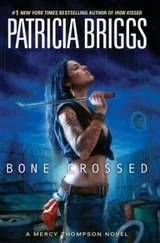‘The house was helpless?’
‘Yeah — something like that.’
‘Did your mother know?’
‘She knew about the shops, because I got caught. The newsagent caught me. She had to go to the police station. And then the headmistress wanted to see her, I was playing truant, and then social services got involved. And that was worse than the police. She wasn’t used to anything like that. And she did what somebody like her would do. She talked to the vicar, and he got me into the church choir. Oh yes,’ he added, noticing Tom’s expression. ‘In the middle of all this, I became a choir boy. Only I stole from the boys in the choir, and the vicar came to the house, and said he couldn’t have me in the choir any more. Not fair to the other boys. And that was it, she cracked.’ He was stubbing a cigarette out as he spoke, grinding it flat. ‘After the vicar had gone,’ he said, at last, deliberately, crumbling fibres of tobacco between his fingers, ‘she took the belt to me. The other thing he left behind. I thought, You can’t do this. She lashed out, shouting, screaming, she looked so ugly, and I suddenly thought, No. And I caught the end of the belt, and wrapped it round my wrist. And then again. I swung her round and round, and then I let go and she crashed into the wall and slid down it. Her wig was all lopsided. She looked at me and I looked at her, and…’ A deep breath. ‘I ran out of the house. I didn’t go back till nearly midnight.’
‘What were you feeling?’
‘Exhilarated.’
‘Where did you go?’
‘Nowhere. Just walked.’
He sat looking down at his hands, unwilling or unable to say more.
Tom broke the silence. ‘How long before Lizzie’s death was this?’
Danny looked up with an expression of mild surprise. ‘Do you know I never realized? It was the day before.’
Lauren rang to ask when it would be convenient for her to come and collect her pictures and some pieces of furniture. ‘Never,’ he wanted to say, but stopped himself in time.
‘Which pieces?’ he asked, grudging and suspicious. He didn’t want or mean to sound like that, but the idea of a van drawing up outside and men carrying away part of his home was unpleasant, to say the least. And, when he first heard her voice, there’d been a second of hope. He’d thought she just might say, ‘Look, let’s not do anything in a hurry. Let’s give it a few more months.’ Instead, there was this crisp, cool, businesslike request for a date and time.
‘The hall table. The sofas in the living room, the balloon-backed chair, the chest of drawers in the bedroom.’
All hers. All entirely reasonable.
When he remained silent, she said, ‘The hall table was a present from my father. I hadn’t even met you.’
‘No, no, of course it’s yours. And the rest.’ Take the lot, he wanted to add, take everything. At the same time he had an uncomfortably clear picture of himself grappling with the removal men on the steps. He’d lived with those things for years. They were part of him.
‘So when would it be convenient?’
Never. ‘Thursday.’ And that word: ‘convenient’, he thought. He hated it. It was a non-word. Like going on talking about ‘discomfort’ when the patient’s screaming with pain. ‘About ten o’clock? Or is that too early?’
‘More like one o’clock. I’m driving up.’
That raised the prospect of food. Drink. He didn’t know whether she wanted that or not. Well, he could offer. She could say no. He didn’t want to give her the opportunity of saying no. ‘All right.’
He wanted to say something else, but then he heard a man’s voice in the background, and her voice answering, muffled, because she’d put her hand over the receiver. ‘Look, I’ve got to go,’ she said, in a breathless rush. ‘One o’clock, Thursday. Okay?’
No. ‘Yes, all right. See you then.’
After she rang off he spent some time trying to convince himself that the voice’ in the background had belonged to his father-in-law, then wandered round the house, dreading the coming invasion. He looked at her paintings. Three of them in the living room, all attempts to capture that peculiar quality of the light on the river in early morning and evening, especially when the tide was out. The most successful was almost abstract: a blend of brown and silver-grey, with the ribs of the submerged boat showing above the water as the tide turned.
His favourite among these paintings was the sunset scene, for no better reason than that he’d been there when she painted it. Late one afternoon they’d taken a picnic and gone out to the estuary, and as the sun sank she set up her easel and started work.
Black bars of cloud across the horizon, but the water was calm, luminous, reflecting the last light of the sky. He settled down with a book, ostensibly reading, but in fact watching Lauren. She became a different person when she painted, opening a can of beer, laughing when the foam squirted into her face, barefoot, an old pair of his jeans tightly belted round her waist. Lauren was beautiful, and elegant, but she was not, except when painting, graceful. She was too self-conscious; none of her movements was exactly the right movement. Except at times like this, stepping back from the canvas, moving forward, dabbing, stepping back, dabbing again… Speeded up, she’d have looked like a hummingbird. It needs something in the foreground,’ she said. ‘You’ll do.’ So, carrying the book, he went and stood where she indicated. ‘Put the book down, for God’s sake. You look like Wordsworth.’ She held his shoulders, manipulating him into the right position. He smelt Chanel 19, which he didn’t find sexy, and turpentine, which he did — very. ‘There.’ A satisfied nod, and she went back to the easel. Looking out of the corner of his eye, he could just see her eyes above the canvas, contemplating him as a problem in light and shade, and beneath it, her bare feet doing their never-ending dance in the dirt.
Almost the worst thing about the last week had been the way in which the snag in his present life ran back into the past and unravelled it. Because they were splitting up, it was easy to believe they’d never really been happy. When he tried to visualize Lauren painting the estuary, the image was changed by the fact that she had left him. The slim figure in the baggy jeans became doubly insubstantial, as if her recording of that sunset over the river had been no more than the first stage of her saying goodbye. Holiday snaps: the need to record a place that you already know will live on only in your memory. In his memory she shifted from one foot to another, raised a can of beer to her lips, streaked paint through her hair, smelt of turps, but she was already dwindling. What this painting gave him, when he looked at it again, was reassurance. She’d painted the river because she loved it, and, grasping the reality of that love, not vaguely, not as a general proposition, but precisely, in the particular strokes of her brush, he was able to go on believing that she had also, once, loved him.
It helped, it soothed him, but on Thursday the paintings would go.
Four days after that conversation with Lauren, Tom found himself standing in a small railway station on the edge of the Yorkshire moors, watching his departing train dwindle to a doubtful wink of light in the far distance. After it had gone there was silence, except for the click of the railway lines contracting after the day’s hot sun, and somewhere, in the far distance, a peewit crying.
On the phone, Angus had sounded brisk and efficient, his Scottish accent less pronounced than Danny’s mimicry had led Tom to expect. No point driving, he said. The Scarsdale Writers’ Centre was at the end of a mile-long track so potholed that only a Land Rover could manage it. And anyway it would be no trouble to meet him at the station.
Читать дальше












